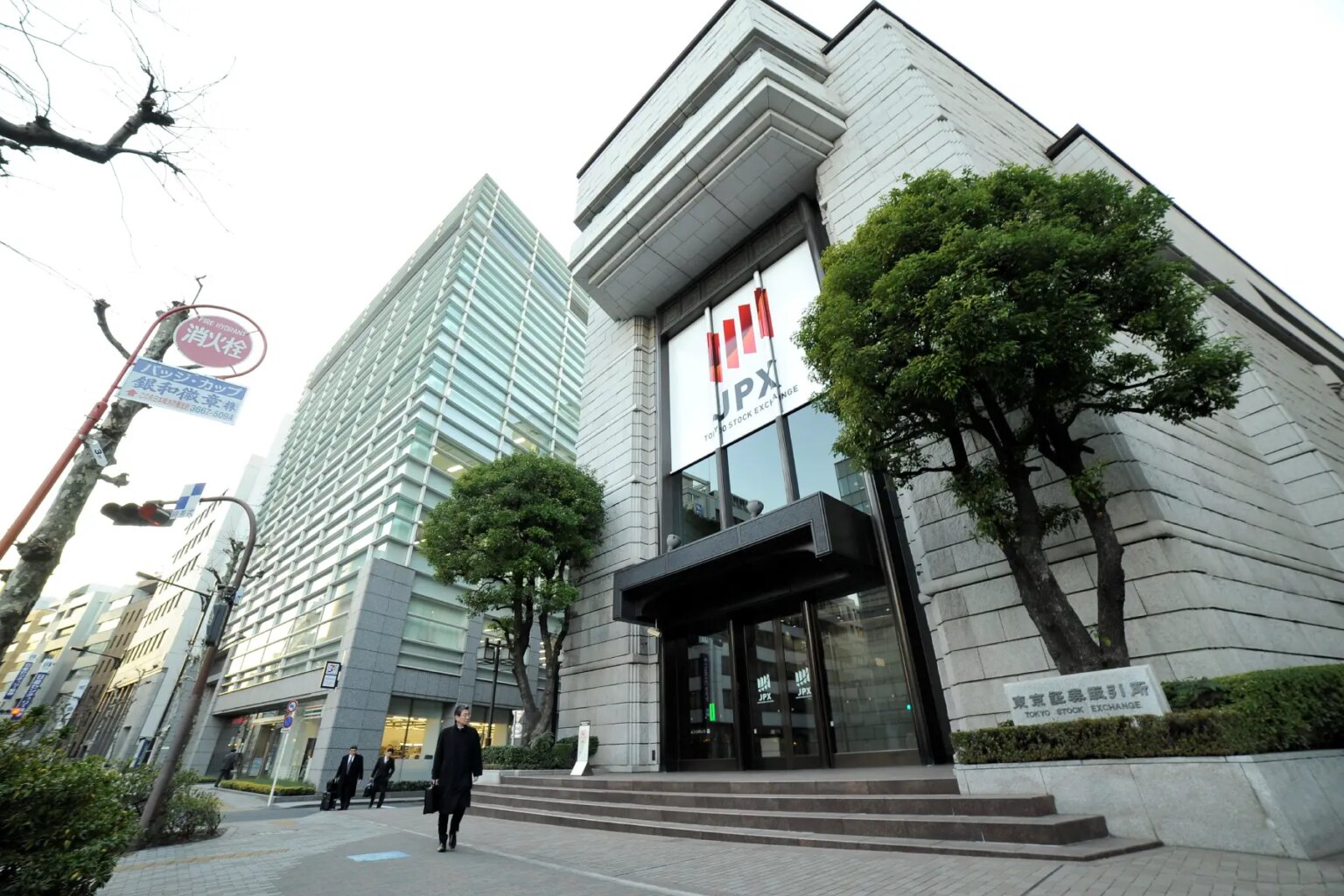If you’re living and working in Japan, you’ll probably want to know how much of your income and assets you must hand over to the government. Do you even need to pay taxes, and if yes, what for?
Discover the basics of the tax system in Japan by reading the following:
- The tax system in Japan
- Who pays tax in Japan?
- Types of tax in Japan
- Japanese income tax
- Social security contributions
- Corporate tax for businesses in Japan
- Consumption Tax: Japanese VAT
- Import and export taxes
- Property tax in Japan
- Local resident taxes
- Road and vehicle taxes
- Environmental tax
- Tourist tax: accommodation, bath, and departure
- Tax on capital gains and wealth
- Japanese gift tax
- Inheritance tax
- Tax avoidance and evasion in Japan
- Tax advice in Japan
- Useful resources
The tax system in Japan
The tax system (税制) in Japan is relatively complicated, with taxes levied at the national, regional (prefectural), and municipal levels. These taxes fund public spending, such as healthcare, education, and pensions.
According to government figures, Japan’s tax revenue in 2024 amounted to ¥78.4 trillion or just under 68% of all government revenue. Japan has high income and inheritance taxes but keeps its Valued Added Tax (VAT) low. According to the latest OECD figures (2024), Japan’s tax-to-GDP ratio is 34.4%, slightly above the OECD average.

The National Tax Agency (NTA – 国税庁), which is part of the Ministry of Finance (MoF – 財務省), oversees tax (税金) in Japan.
The tax year runs from 1 January to 31 December, and residents who need to file a tax return must do so between 16 February and 15 March of the following year.
Japan shares its residents’ tax information with the Automatic Exchange of Information (AEOI) portal to combat national and international tax evasion. Similarly, it has implemented the Crypto-Asset Reporting Framework (CARF) to tackle tax evasion risks related to cryptocurrency and digital assets.
What is new about Japanese taxes in 2025?
Every year, the MoF announces any planned changes to the tax system in the National Budget (国家予算). In December 2024, it announced the 2025 budget along with tax reform proposals. Highlights include:
- The standard income tax exemption increases from ¥480,000 to ¥580,000. The maximum guaranteed deduction for employment income rises from ¥550,000 to ¥650,000.
- The special reduced corporate tax rate for small and medium-sized businesses was due to expire on 1 March 2025, but will now be extended for another two years. Companies with income above ¥1bn will be taxed at a higher rate.
Who pays tax in Japan?
Everyone living and earning an income in Japan needs to pay income tax. The exact rules for income tax vary depending on your residency status.

Taxpayers (納税者) in Japan fall into one of three categories:
- Non-residents (非居住者) – expats living in Japan for less than a year without a primary Japanese residence are only liable for income tax on income earned in Japan
- Non-permanent residents (非永住者) – internationals who have had a residence in Japan for at least a year but who don’t qualify as permanent residents must pay tax on earnings from Japan and foreign income paid in or sent to Japan
- Permanent residents (永住者) – residents who have lived in Japan for at least five years or have official permanent residence status are subject to Japanese income tax on their worldwide income
You can read more about the different residency statuses in our article on Japanese tax returns.
How does tax in Japan work for expats?
The tax rates for international residents are the same as for Japanese nationals. However, non-resident expats pay a flat rate of 20.42% and are ineligible for tax deductions.
If you receive a foreign pension, it may be subject to Japanese law, depending on your residency status. The rules for non-permanent residents with a non-Japanese pension can be complicated and may require you to file a tax return. You should consider seeking expert advice for your specific situation.
In addition, Japan has treaties with more than 50 countries to prevent double taxation, including:
- Austria
- Belgium
- France
- Germany
- Italy
- Luxembourg
- The Netherlands
- Spain
- Switzerland
- United Kingdom (UK)
You can view the full list of countries with double taxation treaties on the MoF website.
Do I need a tax ID number in Japan?
You don’t need a separate tax ID number to pay taxes in Japan. Like most official services, your tax return is linked to the Individual Number (My Number – マイナンバー). You will automatically be assigned this ID number within two or three weeks of registering your Japanese address.
Similarly, when setting up a business in Japan, you’ll be allocated a corporate number (法人番号) by the NTA. This 13-digit number works as a standard identifier for every company in the country, and is used for tax purposes as well.
Types of tax in Japan
When living and working in Japan, you’ll come across a wide variety of taxes. Some, like local resident’s tax, are charged at the local level, while others are paid nationally. Below is an overview of the various Japanese taxes.

Japanese income tax
All residents pay federal income tax (所得税) on their earnings from the previous year. Taxable income includes:
- Your salary or business profits
- Interest on savings or investments
- Rental income (if you rent out a property)
- Pensions
Most Japanese employers withhold tax from your gross monthly salary, meaning you won’t need to file an annual tax return (確定申告). However, if you get income from another source, you do have to submit a tax return.
Likewise, self-employed workers and sole proprietors must file their own tax returns. If your annual income is less than ¥580,000 you may be exempt; however, it’s recommended you always double-check your tax form, even if you don’t have to file one.
Freelancers pay the same income tax as employed workers. However, rather than individual inhabitant tax, they are liable for an additional enterprise tax (more on this below). This is charged at a rate of 4.8–9.6%, depending on the type of business. On the plus side, gig workers can offset certain business expenses when filing their tax returns.
If you overpay, you can request a refund from the National Tax Agency.
You can find more information on tax rates and deductions in our article on Japanese income tax.
Social security contributions
All residents must pay social security (社会保障) contributions, depending on their employment status and income. These contributions consist of:
- Labor insurance (労働保険), which covers unemployment and sickness benefits, as well as workplace accident insurance
- Social insurance (社会保険), which funds pensions, public health insurance (公的医療保険), and social care
Japanese employers and pension providers will deduct your social security payments from your monthly income. In 2025, this totals around 14–15% of your annual earnings.

If you are self-employed, unemployed, or a student, you must make your own contributions separately and independently.
In 2024/2025, the pension contributions have a flat rate of ¥16,520 per month. The amount you must pay for the national health insurance scheme (NHI – 国民健康保険) depends on your age, income, prefecture, and the number of people in your household.
You can read more about national insurance and contributions in our article on Social security in Japan.
Corporate tax for businesses in Japan
Companies based in Japan pay taxes on their worldwide income, while foreign corporations only pay taxes on their profits sourced in the country.
The standard corporate tax rate is 23.2% (effective rate of 29.74% taking into account other taxes).
Reduced rates are available for small and medium-sized companies. For eligible businesses, the first ¥4 million is taxed at a rate of 15% (effective rate 21.37%) and the amount between ¥4-8 million is taxed at 19% (effective rate 23.17%). The 15% rate rises to 17% for companies with ‘extremely high’ income above ¥1 billion.
If your business is family-owned, you may also be subject to taxation of retained earnings. The rate varies per tax bracket:
- 10% on retained earnings under ¥30 million
- 15% on retained earnings of ¥30–100 million
- 20% on retained earnings over ¥100 million
Depending on your location, companies with premises above 1,000 square meters or more than 100 employees may be liable for business premises tax (事業所税). The rate is based on the corporation’s physical footprint (¥600 per m2) and gross payroll (0.25%).

Corporate tax return forms come in two formats:
- White form – the default form for corporation tax returns
- Blue form – this comes with a variety of tax benefits. As such, you must have approval from the appropriate national tax office before you can file a blue form tax return.
Additional levies for businesses in Japan
In addition to the standard corporate tax, businesses in Japan are subject to a number of other levies:
| Tax | Standard tax rate |
| Local corporate tax | 10.3% of the national corporate tax rate |
| Corporate inhabitant tax (both prefectural and municipal) | Determined by a number of factors, including location, paid-in capital, and the amount of employees |
| Enterprise tax (differs per location) | Consists of: – An income levy of 4% on the first ¥4 million – An income levy of 0.7% on ¥4–8 million – An income levy of 0.7% on profits over ¥8 million – Added value levy of 1.2% – Capital levy of 0.5% |
| Special corporate enterprise tax | – 260% of the enterprise tax amount calculated by the standard tax rate |
Consumption Tax: Japanese VAT
In Japan, the value-added tax is called Consumption Tax (CT – 消費税), and applies to most goods and services. The standard rate is 10%; however, a reduced rate of 8% applies to most food items (excluding alcoholic drinks and meals in restaurants) and biweekly newspapers.

Goods and services that are CT-exempt include:
- Financial services (e.g., loans and insurance)
- Land sale or lease/rental spaces
- Public services
Freelancers and companies must register for CT and file returns if their sales exceed ¥10 million during the base period (i.e., the two years immediately before the current financial year). If their sales are ¥10 million or less, they are exempt from submitting a return. The deadline for filing a CT return is 28 February.
Businesses in Japan often charge consumers the CT as an indirect tax. Some display the CT amount separately on their price labels.
Additional tax on liquor and tobacco
Alcoholic drinks in Japan are subject to an additional liquor tax (酒税), which is included in the price of the beverage. Tobacco products are also subject to an additional tax (たばこ税). Tax on cigarettes will rise by ¥0.5 per year in 2027, 2028 and 2029.
Can you get a refund on Japanese VAT or CT?
Non-residents who have been in Japan for less than six months and don’t work in the country – for example, tourists – can benefit from some tax-free goods and services. These are available in stores with a red and white “tax-free shop” logo.
Eligible customers typically need to spend at least ¥5,000 to qualify. The tax-free amount will either be deducted or refunded on the spot.
Import and export taxes
Japan has one of the lowest customs tariffs (関税) in the world, with a rate of just 2.5% charged on most products. The threshold for paying a tariff is ¥10,000. Higher rates may be levied on some imports, including agricultural products (15.5%) and clothing (9.2%).

Preferential rates may be available for countries that have a trade partnership with Japan. The website of the Ministry of Foreign Affairs (MoFA) lists eligible countries.
Property tax in Japan
When you buy property in Japan, such as a home or commercial real estate, you are liable for a one-off:
- Acquisition tax (不動産取得税) – 1.5% of the land value, plus 3% of the building value, billed within six months of purchase
- Registration tax (登録免許税) – 1.5% of land value, 0.3% of the building value, and 0.1–0.4% of the mortgage value
- Stamp duty (印紙税) – ranging from ¥5,000–480,000
However, it doesn’t stop there. Property owners are liable for annual municipal taxes, including:
- City planning tax (都市計画税) – ranging from 0.2–0.4% of the property’s appraised value
- Fixed asset tax (固定資産税) – the standard rate is 1.3% of the appraised value; however, it differs per area
The local tax office calculates your tax bill and sends it out between April and June each year.
Finally, when you sell a property in Japan, you may need to pay capital gains tax (譲渡所得税). How gains are taxed depends on the amount of time you’ve owned the property:
- 39.63% if you’ve owned the property for less than five years (i.e., short-term gains)
- 20.32% if you had the property for five to 10 years (i.e., long-term gains)
In addition, those selling their primary residence can benefit from a ¥30 million tax deduction on their capital gains tax bill (more on that below).

Local resident taxes
All Japanese and expat residents in Japan pay individual inhabitant tax (or resident tax – 住民税). This is split between a 6% municipal tax (市民税) and a 4% prefectural tax (県民税), totaling 10% of your income. The local governments may use the revenue to provide their administrative services.
The individual inhabitant tax is usually levied in January, June, August, and October. Your municipal tax authority will most likely send you a collective Tax Notice (納税通知書) or Tax Payment Slip (納付書) for the total resident tax due. Some, however, will have made agreements with employers to withhold the jūminzei from your monthly salary.
If you are a self-employed freelancer, you don’t pay this resident tax. Instead, you are liable for enterprise tax (as explained under corporate tax).
To find out more, you can visit the website of your local tax office.
Road and vehicle taxes
Car owners in Japan pay automobile tax (自動車税), and those driving a light motor vehicle (e.g., a motorcycle or moped) are liable for light motor vehicle tax (軽自動車税).
The amount depends on the vehicle use (business or private use), vehicle type, and engine power. It can vary between ¥29,500 and 111,000, though higher rates are charged for vehicles older than 13 years. If you are living with a disability, you may be exempt.
You can find a full table on the website of the Okinawa Institute of Science and Technology (OIST – 沖縄科学技術大学院).
Environmental tax
Japan’s environmental taxes are minimal. Consumers are liable for vehicle tax and CT levied against energy and fuel consumption, and businesses are subject to a small carbon tax of ¥289/t-CO2.

The Japanese government plans to introduce a separate carbon levy on energy companies from 2028, expected to be around ¥1,500/t-CO2.
The Japan Center for a Sustainable Environment and Society (JACSES) has been campaigning for a green tax reform that would introduce new environmental taxes and update existing fiscal policies.
Tourist tax: accommodation, bath, and departure
Local governments may charge tourists from outside their bounds (including Japanese citizens) an accommodation tax (宿泊税). This applies to stays at commercial businesses like apartments, hotels, and other lodgings.
Each locality may impose its own tax rates and regulations. For example, Kyoto charges ¥200–1000 per night, Tokyo wants ¥100–200 per night, and Osaka asks for ¥100–300 per night. When levied, the tax revenue typically pays for public services.
Similarly, municipalities may impose a bath tax (入湯税) for visits to a hot spring facility or mineral spring bath. Again, each local government may set its own tax rates and regulations.
Most tourists leaving Japan are required to pay an international tourist tax of ¥1,000 per departure. Exemptions apply for:
- Children younger than 2 years old
- Foreign ambassadors, ministers, consuls, state guests, and others with similar status
The tourist departure tax is usually included in the ticket prices and is collected by the travel agency. The Japanese government uses the revenue to develop tourist services, improve access to local attractions, and create a more comfortable and stress-free environment.
Tax on capital gains and wealth
Capital Gains Tax is what you pay when you sell, give away, or get compensation for any type of asset in Japan and abroad. Taxable goods include:
- Land and real estate
- Stocks, shares, and other investments
- Precious metals and gems
- Paintings and antiques
- Copyrights
- Golf memberships
- Machinery and equipment
Items for everyday use, such as furniture and vehicles, are excluded from the Capital Gains Tax. Possessions worth under ¥300,000 are also considered “assets for everyday use.”

As said before, capital gains from the transfer of land, real estate, and shares are taxed depending on the amount of time you’ve had the property:
- 39.63% for short-term gains (less than five years)
- 20.32% for long-term gains (five years or more)
However, when you sell any other asset, the profits are subject to comprehensive taxation. That means it is added to other income types (such as salary, business profits, and rental income) before deductions are applied.
The Capital Gains Tax rates are as follows:
| Taxable income | Deductions | Tax rate |
| Up to ¥1,950,000 | – | 5% |
| ¥1,950,000–3,300,000 | ¥97,500 | 10% |
| ¥3,300,000–6,950,000 | ¥427,500 | 20% |
| ¥6,950,000–9,000,000 | ¥636,000 | 23% |
| ¥9–18 million | ¥1,536,000 | 33% |
| ¥18–40 million | ¥2,976,000 | 40% |
| ¥40 million and more | ¥4,976,000 | 45% |
It’s worth noting that capital gain on long-term assets may be halved before being added to your taxable income.
Japanese gift tax
Residents must pay a gift tax (贈与税) when they receive a monetary gift above ¥1.1 million from an individual in Japan (donations from companies are subject to income tax). A reduced rate applies to gifts from lineal ascendants (i.e., (grand)parents) to descendants over 18 years old.

Likewise, allowances and deductions are available depending on the recipient’s relationship to the benefactor. For example, donations to non-profit organizations (NPOs) based in Japan are allowed a 40% deduction, minus ¥2,000.
In 2025, the gift tax rates are as follows:
| Gift | Tax rate | Available deductions | Tax rates for descendants | Available deductions |
| Under ¥2 million | 10% | – | 10% | – |
| ¥2–3 million | 15% | ¥100,000 | 15% | ¥100,000 |
| ¥3–4 million | 20% | ¥250,000 | 15% | ¥100,000 |
| ¥4–6 million | 30% | ¥650,000 | 20% | ¥300,000 |
| ¥6–10 million | 40% | ¥1,250,000 | 30% | ¥900,000 |
| ¥10–15 million | 45% | ¥1,750,000 | 40% | ¥1,900,000 |
| ¥15–30 million | 50% | ¥2,5 million | 45% | ¥2,650,000 |
| ¥30–45 million | 55% | ¥4 million | 50% | ¥4,150,000 |
| ¥45 million or more | 55% | ¥4 million | 55% | ¥6,4 million |
The Japanese tax system allows a basic tax exemption of up to ¥20 million for residential property gifts between spouses who have been married for 20 years or more.
You can also choose to settle your gift and inheritance tax bills later. However, because of the complicated rules, it may be wise to seek expert financial advice.
Inheritance tax
After someone’s death in Japan, their heirs may be liable for inheritance tax (相続税). They must file the tax return within 10 months of the passing.
Inheritors can offset a flat exemption of ¥30 million, plus a further ¥6 million per beneficiary, against the estate’s value. Once this value is determined, each share of inheritance tax is calculated individually. If the estate is valued at less than the exemption, the heir won’t need to file a return or pay inheritance tax.

Inheritance tax rates range from 10 to 55%, as follows:
| Value | Rate | Deductions |
| Up to ¥10 million | 10% | – |
| ¥10–30 million | 15% | ¥500,000 |
| ¥30–50 million | 20% | ¥2 million |
| ¥50–100 million | 30% | ¥7 million |
| ¥100–200 million | 40% | ¥17 million |
| ¥200–300 million | 45% | ¥27 million |
| ¥300–600 million | 50% | ¥42 million |
| ¥600 million or more | 55% | ¥72 million |
Expats who have been living in Japan for more than 10 years must pay inheritance tax on any assets bequeathed to them, even if the deceased lived abroad.
Tax avoidance and evasion in Japan
As in many countries, tax evasion (脱税) is a significant problem in Japan. Official NTA data shows that, up to June 2024, undeclared income from high-income earners totalled ¥65.5 billion per year.
Anyone caught concealing their assets abroad can face a prison term of up to three years and a fine of up to ¥2.5 million.

The statute of limitations in Japan for tax audits is five years, though extensions are available in cases of suspected tax evasion. An additional three-year period is given if a taxpayer fails to supply documents related to overseas assets or transactions.
What if I don’t do my taxes on time or at all?
If you fail to file your taxes on time or deliberately withhold information about your earnings, you may face a fine and/or other punishments. For example, while currently only a government proposal, Japan plans to evict foreign permanent residents who fail to pay their taxes and social insurance contributions.
Depending on your (in)action, tax fines and penalties include:
- Fines for late income tax returns are 15% of the amount owed, rising to 20% for amounts over ¥500,000
- Failing to file a CT return can amount to 15% of the tax owed, plus an additional 5% on any sum exceeding ¥500,000
- Deliberately withholding information can lead to a fine of at least 35–40%. You face a further 10% on top of these rates if you’ve already been fined for the same offense in the last five years.
- Delinquent tax fees for late payments can amount to 7.3–14.6% per year, plus interest
Tax advice in Japan
This article is meant for informational purposes only and should not be taken as tax advice for your individual situation. Due to the complexity of the Japanese tax system, you should always consult your own financial advisor with any specific tax issues or questions.
Japan has a number of expat-friendly tax experts who offer help and information in English, Chinese, or other languages, including:
When hiring a financial advisor, make sure they meet the standards set by the Accounting Standards Board of Japan (企業会計基準委員会). This is overseen by the Japanese Financial Services Agency.
Useful resources
- National Tax Agency – official information on the Japanese tax system and rules in English
- Japanese Budget – latest information on the national budget in English
- Ministry of Finance (MOF) – official Japanese fiscal information in English
- EU-Japan Centre – resource for international companies liable for corporation tax in Japan






